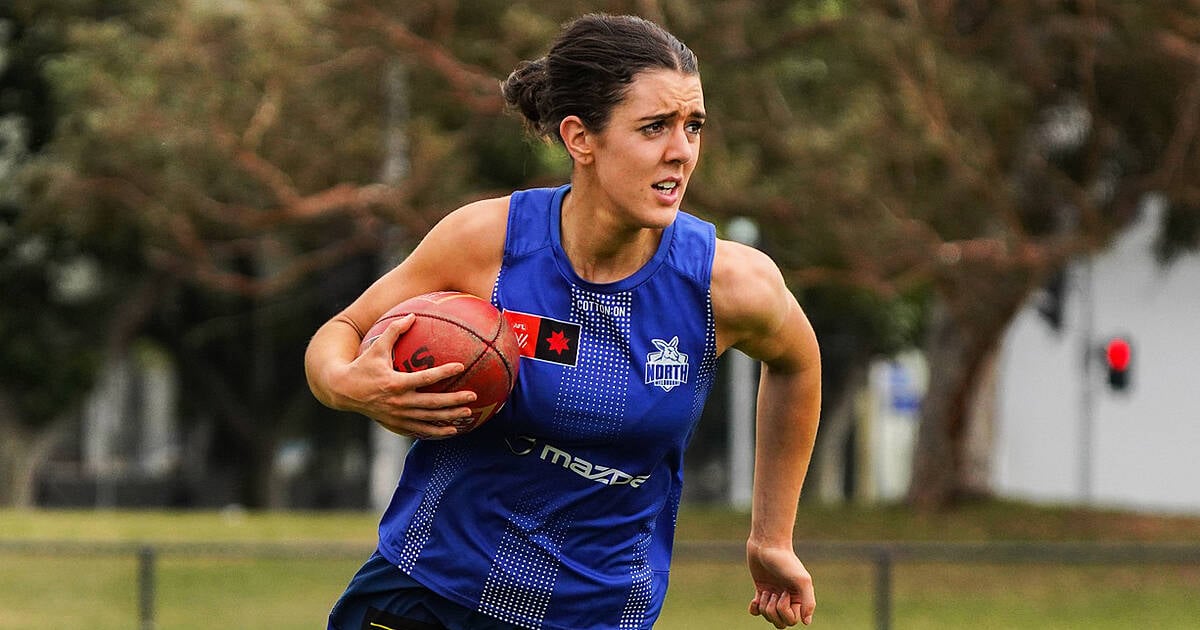Joel Smith’s teammates avoid sanction after he cops four-year drug ban

- by Admin
- November 1, 2024

“The outcome in this matter, in which Joel Smith has been suspended for more than four years, reflects the seriousness with which the AFL treats breaches of the Australian Football Anti-Doping Code and is a salutary lesson for any player using illicit substances that are prohibited under the WADA code,” Dillon said.
“The use of performance enhancing substances is strictly prohibited in Australian Football and the AFL will continue to work with Sport Integrity Australia to identify and prosecute the use of such substances in-competition and other conduct prohibited by the Australian Football Anti-Doping Code.
“The AFL does not in any way condone the use of illicit drugs. If a player chooses to use illicit drugs, the potential consequences are substantial, including risks to health and safety and of losing the privilege of playing professional football, as has occurred here.”
Smith, the son of former Melbourne and North Melbourne high-flyer Shaun Smith, played 42 games for Melbourne after making his debut in 2017. He played 14 games in 2023.
Smith has been banned for more than four years.Credit: AFL Photos
Smith played in three matches after round 23, including two finals. Melbourne lost both of those games, but his positive test was not known until after the AFL season finished.
The use of a recreational drug such as cocaine only becomes an issue under the World Anti-Doping Code if a player tests positive on game day.
Smith, who initially faced a two-year ban for the positive test, had hoped for a three-month suspension due to changes in the WADA code that allowed a more lenient penalty if the athlete could demonstrate the positive test to an illicit drug (such as cocaine) was out-of-competition and without any performance-enhancing effect or intention.
The minimum penalty for testing positive to cocaine, or what is categorised as a “substance of abuse”, on match day was reduced to three months in January 2021 if the athlete could prove it wasn’t performance-enhancing.
Previously an athlete could receive a maximum penalty of four years if an illicit substance was in their system on the day of competition, even if it wasn’t performance-enhancing.
The trafficking charges under the anti-doping code were levelled by SIA in February this year, constituting three doping violation allegations for the alleged trafficking, or attempted trafficking, of cocaine.
Under the Australian Football Anti-Doping Code, trafficking is defined as “selling, giving, transporting, sending, delivering or distributing a prohibited substance, by an athlete … to any third party”.
According to the code, which adopts the World Anti-Doping Agency’s code, for “Trafficking or attempted trafficking or 2.8 (administration or attempted administration), the period of ineligibility shall be a minimum of four years up to lifetime ineligibility, depending on the seriousness of the violation”.
In a statement, SIA said: “His (Smith’s) sample was analysed at the Australian Sports Drug Testing Laboratory, part of the National Measurement Institute, which detected the presence of cocaine and its metabolite benzoylecgonine.”
The Latest News
-
December 23, 2024TaylorMade drops Hall-of-Fame Christmas posters starring Tiger Woods, Rory McIlroy and Nelly Korda – Australian Golf Digest
-
December 23, 2024Here’s why Golf Twitter lost its damn mind over Team Langer’s PNC victory – Australian Golf Digest
-
December 23, 2024Social Media Ban in Australia: What Online Casinos Can Learn on Responsible Gambling Practices? – Insights from CasinoAus
-
December 23, 2024From smaller homes to screen time, backyard cricket is facing challenges in modern Australia
-
December 23, 2024This quiet Canadian will make you love YouTube golf again – Australian Golf Digest




